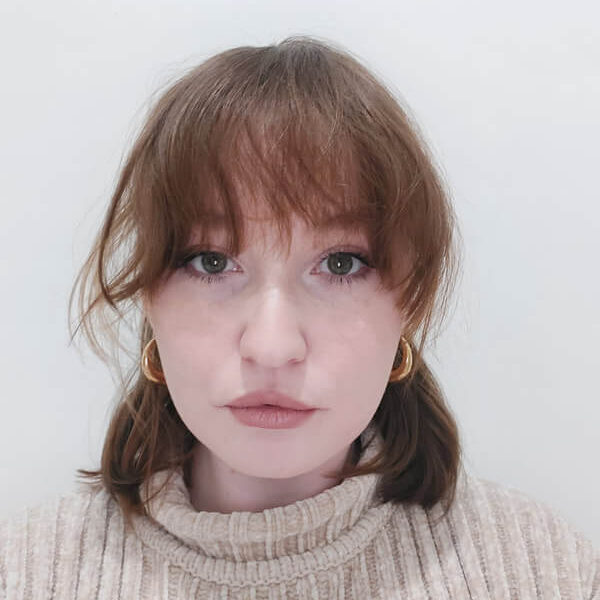I started my PhD, very unceremoniously on a random Tuesday, March 1st to be exact. However, I have just started the next 4 years of my life. Beginning a PhD seems daunting at the best of times and during the (hopefully) last leg of a pandemic is even scarier, but this is what I had planned and worked towards for years.
Achieving both a BA and MA in Archaeology, graduating from both during varying lockdown restrictions, I purposefully looked to see this passion through to the very end, but I had almost no idea what to do. A little fish in a limitless ocean.
I was aware of my research project; I had a good proposal to continue my exploration of the archaeological analysis of human sacrifice that I had begun in my Undergraduate dissertation.
While I knew what to do with my topic, I had no idea how a PhD worked daily.
Meetings with supervisors and school directors over zoom revealed that my day-to-day tasks were writing the thesis and improving myself as a professional. That’s it?
These are some simple instructions, that you could do the most with or the bare minimum and finding the right balance of that for yourself is the challenge. The beginning of a PhD seemed like trying to propel yourself deep into a fully functioning machine, taking the lead of arranging meetings, contacting professionals, planning sections of your thesis, and above all getting the work done. My first steps included articulating my research questions, exploring methodologies, writing a solid part of my literature review, and getting into a routine. These were simple enough and the fuel from a boring couple of months without academic anxiety pushed me through them quickly, I suspect maintenance will be the hard part.
My advice for these practical actions is:
• Read the theses of your supervisor’s past students.
• Use notion to make an academic hub to store Kanban boards, to-do lists and a library of all the media used.
This has a function that saves automatically and can be accessed anywhere on your laptop or smartphone.
• Make your to-do lists urgent and non-urgent. In other words, a minimum and maximum to-do a day
(so you can do only the necessary tasks and not feel bad about not doing the extra).
• Create a good environment to work from home (candles, incense, music etc.)
• Take free courses in anything you can by using open university or LinkedIn learning.
• Write down any ideas you have relevant or not.
• Work 9-5 on weekdays on your PhD (if you’re full-time).My boyfriend works these hours so it works well to match these and use work time effectively.
These are a few practical tools to aid completing your PhD, however there are mental ones too. My university routinely references the skill ‘resilience’ to PhD students which is a talent that will take the entire length of your course.
The first step of your PhD is to kill the part of you that feels like you are an inconvenience to everyone. Academia is isolating, your background can make you feel unwanted, and you might never think you’re smart enough. However, this is not their investment in you, this is your investment in yourself. It is a hard habit to form; I have not mastered it yet but feel comfortable in knowing that you belong there. Ask your questions, send your ten drafts, and turn up to events. I’ll continuously remind myself of the same when I feel annoying emailing my supervisors.
A major part of the PhD is becoming part of the academic community, which for “first-gen” PhD students feels like the biggest hurdle. Your work could be great, but none of it seems like reality if you feel like an outsider. Instead, see it as carving out your academic community, especially with others who feel the same, with support and encouragement. I hope this blog piece serves as an introduction to a great academic community that speaks on the less desirable aspects of higher education and lifts others up.
Personally, my next steps will be learning even more research skills; ethical analysis and application, grant writing and technical skills such as bioarchaeology. Maybe I’ll even learn R! Other upcoming actions will be dedicated to networking both professionally and academically, learning how to collaborate with my supervisor, especially while they are on research leave, and toying with the idea to make a YouTube channel à la Histocrat or Miniminuteman.
Social media presence has been an aspect thoroughly explored by other authors on The PhD Place like Chris Thompson who has wonderful views on the professional steps which I’m going to implement myself. Something important in marketing yourself on social media and networking is also to remember not to take yourself too seriously; your research is an extension of yourself, and you don’t have to dilute your personality to become more palatable in an academic sphere. I’m going to be acting professionally but I draw the line at not wearing my platform Doc Martens and posting cat memes.
As for my career progression I am always revising my CV, a great tip I’ve learnt is to create a master document of all things to include in a CV that you can copy and paste over to a new document. This enables you to tailor your applications to certain jobs. You should include all work experience whether that is retail or academic as well as any online courses you might have completed on LinkedIn Learning or the Open University site. You’ll be learning new skills and achieving new experiences every month that you’ll want to keep track of. After just being hired by a tutoring company, I’m planning to engage more in the teaching aspect and how to improve other people’s knowledge in humanities on a 1 to 1 scale and harness this for more opportunities at my university and to, most importantly, earn money!
Above all, I am going to take my health seriously. For the first time I can look after my body and not run myself into the ground. Contrary to popular belief, and one I subscribed to for a long while, struggle and despair are not creative tools. Art does not seep out of me because I am depressed and unhappy but striking a meaningful balance between health and productivity does. This again is a work-in-progress, something that is now part of my identity. As PhD students we have all chosen to improve ourselves and it is easy to criticise ourselves for not being on the same level as people who have much more experience but we’re all taking different journeys.
I am only 23, and I have been formally doing my PhD for just over a month. I will be far wiser when this is over.
Until then, I’ll be here, floundering, for another 4 years, in fact right up until graduation…but I will graduate.




